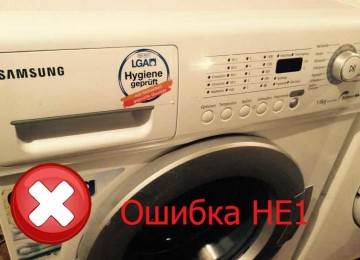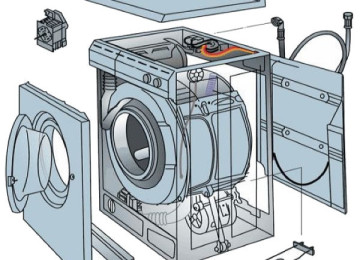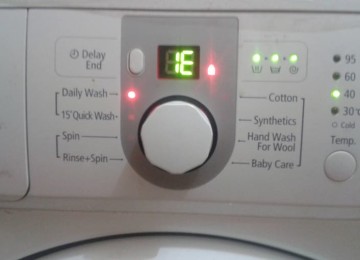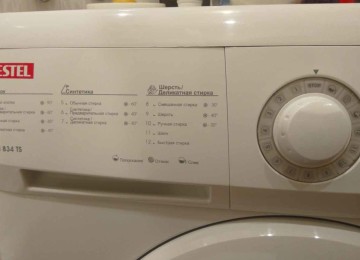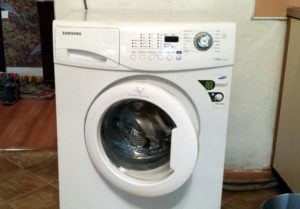 Owners of washing equipment often encounter a situation when the machine stops spinning clothes. There are a number of reasons why this malfunction occurs. Next, we’ll find out what to do if the Samsung washing machine doesn’t spin things out.
Owners of washing equipment often encounter a situation when the machine stops spinning clothes. There are a number of reasons why this malfunction occurs. Next, we’ll find out what to do if the Samsung washing machine doesn’t spin things out.
Malfunction caused by the user
Most often, the spin cycle in the machine does not work due to the user’s carelessness. The reason may also be a violation of the rules for operating washing equipment.
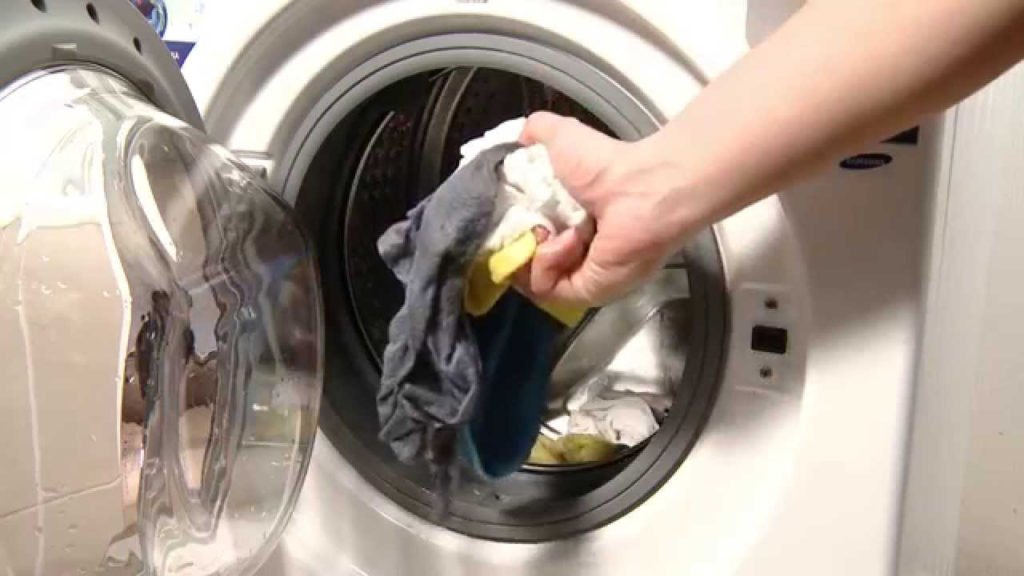
For example, if the washing mode is selected incorrectly, the laundry pulled out of the drum will be wet or damp. It should be noted that some delicate wash cycles do not spin the laundry. Due to this, it is possible to preserve the delicate fabric.
A clog in the pump or drain filter can cause serious problems with your washing equipment. Such blockages occur due to lack of proper care of the washing machine.
The filter must be cleaned regularly. This way you will prevent clogging of the drain system, which causes stagnation of water and an unpleasant odor. If the equipment does not spin out the laundry and the drum contains water, then first of all you should check the drain filter.
In Samsung washing machines it can be found behind a small door, which is located in the lower right corner of the machine. There is a hose near the filter cover. You can use it to drain the remaining water from the drum. Next, you need to unscrew the drain filter and remove the blockage.
Poor spinning of laundry can also occur when the drum is underloaded or overloaded with laundry. If you load bulky items into the unit, the load on the washing machine parts will increase, and the spin of the laundry will be of poor quality. Also, do not machine wash items that are too light. They will cause imbalance and perform poorly.
Troubleshooting
What to do if your Samsung washing machine does not spin clothes? Spinning may not occur if technical problems occur. To find out the cause of the breakdown, you need to perform a sequence of actions.
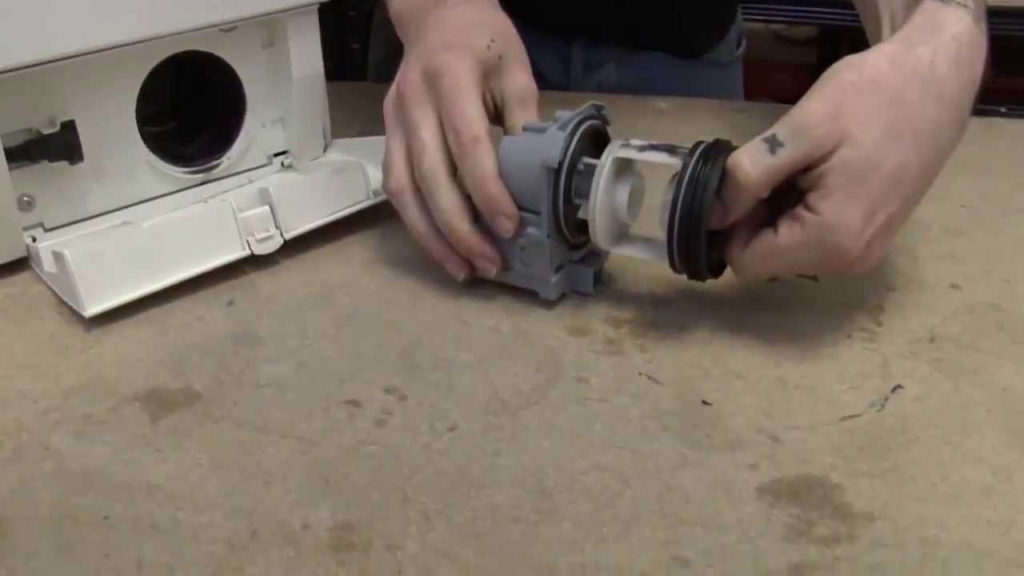
It is advisable to check the machine parts in the following order:
- Water pump;
- Tacho sensor;
- Electric motor;
- Pressostat;
- Control module.
So, the check needs to start with the pump, tachometer and electric motor.
To do this you need:
- Shut off the water supply.
- Disconnect the machine from the water supply and sewer system.
- Remove the device from the place in which it is installed.
- Remove the powder receptacle.
- Carefully place the machine on its left side. This will prevent water from leaking onto the electrical elements of the washing machine.
- Remove the pallet.This work must be done carefully. The leakage sensor wire should remain undamaged.
- Next you need to find the pipe that goes from the machine tank to the pump. Remove the plastic clamps securing this pipe.
- Remove the pipe and check its condition. It should not contain dirt or other objects.
- The pump is held in place with screws. You need to unscrew them and then remove the pump itself.
- Check the condition of the pump. There should be no damage to it. You also need to carefully inspect the impeller.
We measure the resistance at the contacts of the dismantled pump. This is done using a multimeter. A three-digit number will appear on the device screen if the pump is working.
Next you need to check the tachometer. It is a small device. Externally, the tachometer looks like a ring from which wires stick out.
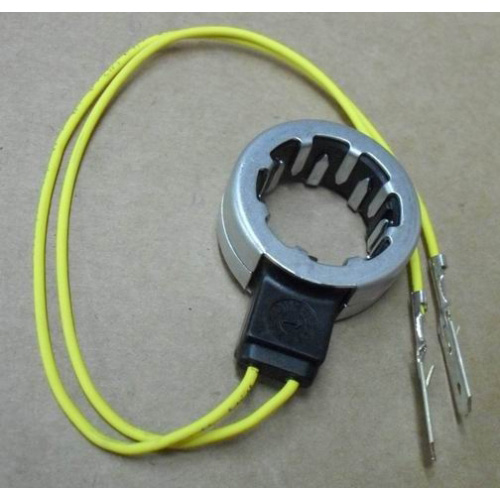
This part is located on the electric motor. Its purpose is to transmit data on the intensity of rotation of moving engine parts to the control module. Spinning laundry without this part is impossible.
First you need to disconnect the tachometer wires. Next, you need to remove the sensor itself from the washing machine motor. Using a multimeter, we check the resistance and determine the serviceability of the part.
Next you need to disconnect the wires from the motor. You need to work carefully. Then remove the drive belt from the pulley.
It is recommended to take a photo of the wiring location on the motor. This will greatly simplify the subsequent installation of the engine in its original place.
Next, you need to unscrew the fasteners securing the electric motor, and then carefully pull it out. First of all, you need to remove and check the condition of the brushes, since they very often fail.
Use a multimeter to check the winding resistance. If the winding is broken, the motor most likely cannot be restored. Of course, you can give it to a master who will rewind it. However, such repairs will cost almost the same as a new engine. It's easier to buy a new motor.
The next step is to check the pressure switch. If this sensor malfunctions, the machine will not be able to spin the laundry. After all, the control module does not receive information about the water level in the tank and freezes until the laundry starts spinning.
To get to this sensor, you will have to remove the top cover. Under the lid there is a plastic washer with a tube. This is a pressure switch. You need to disconnect the wiring from the sensor and carefully remove it. The main part of the pressure switch is made of plastic. However, it also contains an electrical part. You need to check it with a multimeter. You also need to blow out the pressure switch tube.
Troubleshooting
When you sequentially check all the details listed above, you will definitely find an element due to which the Samsung washing machine does not spin out clothes.
As a rule, to eliminate a malfunction, you need to replace the damaged element. However, if the impeller is damaged, you can only replace it, and not the entire pump.
If you cannot find a suitable impeller, you will have to purchase a new pump.
Sometimes it is possible to repair a faulty pressure switch by replacing its electrical part.
So, Samsung washing machines may not spin for many reasons, ranging from simple user errors to serious malfunctions. In any case, it is better to fix the breakdown immediately. similar posts from this section






